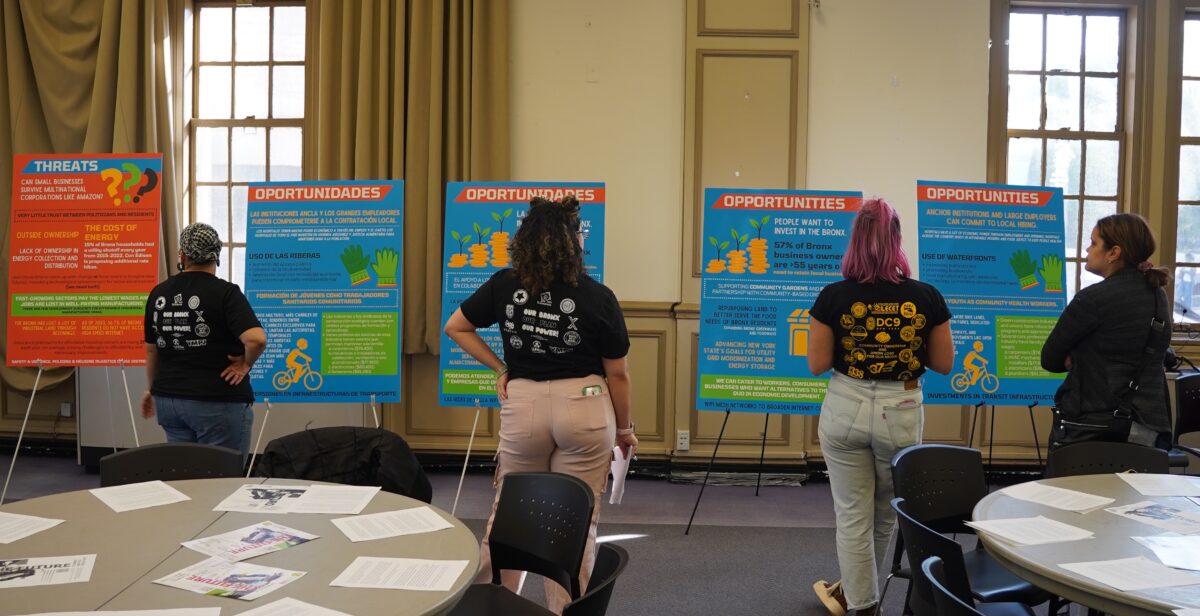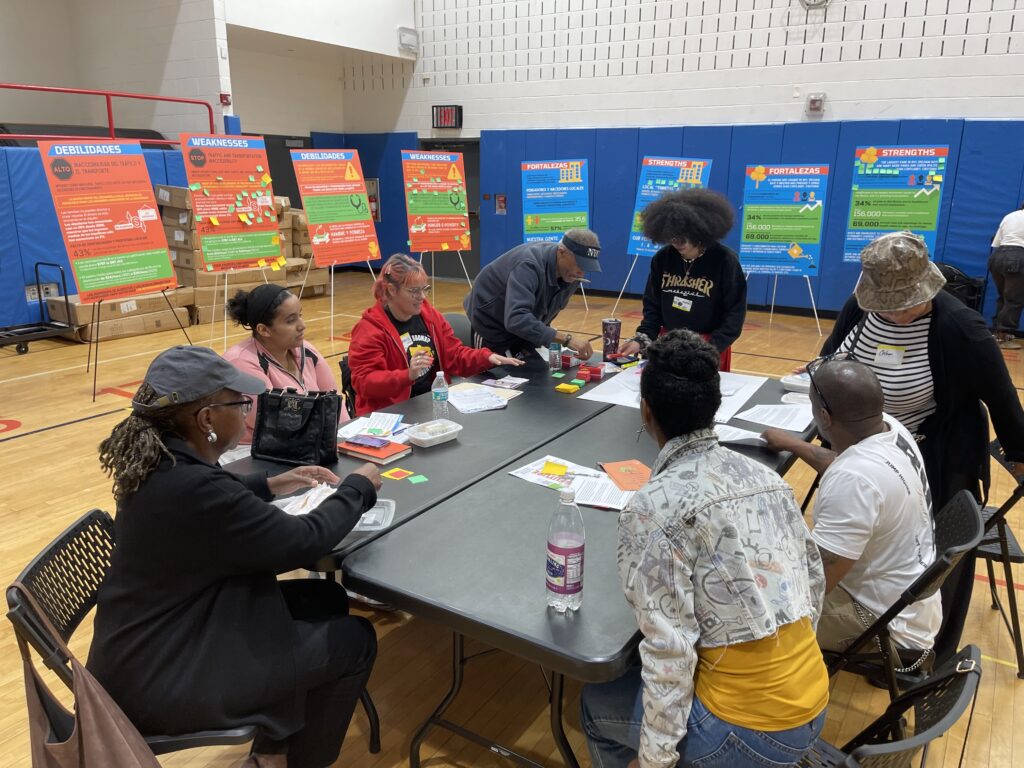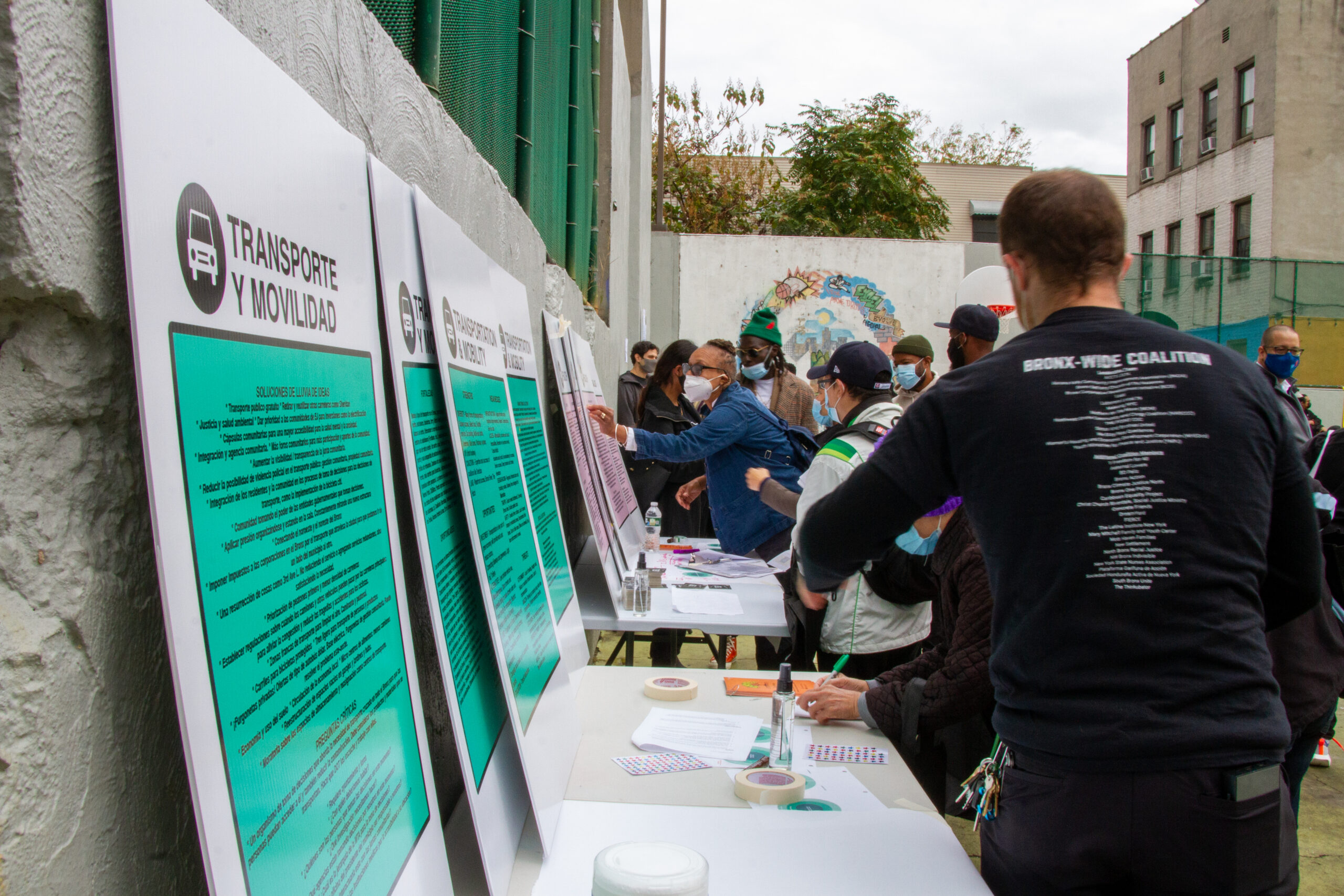Bronxwide Plan Assemblies

In 2020, the Bronx Cooperative Development Initiative, which is now part of Northwest Bronx Community and Clergy Coalition (NWBCCC), began convening a series of assemblies that invited Bronx residents to work together to develop a vision for the Bronx’s future. As described in an upcoming case study (part of our “Assemblies a Tool for Just Democracy” report), participants and organizers used the assemblies to develop the Bronxwide Plan, and worked with the Bronx’s Borough President and the Bronx Economic Development Corporation to turn the community’s vision into an official proposal for the borough. In this Q&A, we asked Evan Casper-Futterman, Katherine Mella and Caesar Tobar-Acosta from NWBCCC to share about their assemblies. Here’s what they have to say. You can also read our full case study.

What were the assemblies, and why did you hold them?
In 2020 we initiated an economic development planning process as part of launching a Bronxwide effort to shape a nonpartisan policy agenda for a congressional race that year. We included a planning process for a different kind of Bronx economy into our nonpartisan platform work because we saw the necessity for long-term thinking and action outside of traditional civic engagement and legislative arenas and in the everyday realm of economic and daily life of Bronx residents. Despite COVID restrictions on social life, we engaged thousands of Bronx residents in shaping an economic development vision grounded in values of racial justice and economic democracy. Our work had an impact on the Bronx Economic Development Corporation: they approached our coalition in 2024 to partner with them as co-leads on a federal grant to certify a Comprehensive Economic Development Strategy (CEDS) for the Bronx. We are currently concluding a round of four in person assemblies across the entire Bronx for this process and for the first time will have an officially certified economic development plan for our borough.
What kinds of organizations and relationships were involved in making them happen?
For the first five years of our coalition work, we drew on decades of relationships and work in community organizing, advocacy, and direct services, and built new partnerships in geographic areas and with institutions that we had not previously been working with regularly. This allowed us to expand and deepen relationships and our base across the whole borough, and reach out to new faith communities as well as organized labor groups that had not been in the community development space in the Bronx previously. Our work now includes a partnership with the Bronx Economic Development Corporation, which was also new, but necessary growth to create real change and impact in the Bronx economy beyond our typical neighborhoods and comfort zones. As part of the CEDS process, we were also required to create and convene a Strategy Committee to advise on the process and final plan. This includes overlap from our Bronx-wide Coalition members as well as local educational, health, cultural, and financial institutions.
How did you recruit participants, what kinds of folks participated and what issues did they focus on?
In the first round of assemblies in 2021 during the heart of the “COVID era” we used all of the tools possible to reach people beyond the scope of our traditional in-person meeting spaces: social media and phone calls were how we reached people that we had pre-existing relationships with. There was such a strong desire for human connection in those days of intense isolation that our outreach just to our existing circles often yielded new relationships and contacts. For the latest round of our assemblies for the official CEDS process with BXEDC, we have had the opportunity to test out more public-facing communications and outreach to the general public: street posters, ads on buses, direct outreach to community boards, merchant associations, and Business Improvement Districts (BIDs). In the first round, we asked participants to engage with specific “sectors” or systems in the Bronx, and to develop Strengths/Weaknesses/Opportunities/Threats (SWOT) analyses for each. This created a really rich collection of insights that we were then able to build upon in 2025 with our current round of public assemblies: rather than starting from scratch, our SWOT conversations this time were able to start with the existing insights from the last round and go deeper from there.

What was most exciting about the process to you?
Seeing people have conversations about the future of our community and our economy is a powerful antidote to despair. We live in very polarized times politically, and also very isolated times socially. The idea of, and importance of democracy itself, is now very much being questioned. People are busy, skeptical, and cynical because our economic system does not work for the majority of people in the Bronx. In person conversations may seem outdated or “old school” to a lot of people when there’s Instagram Live, but building the kinds of relationships that can sustain movements for years require meeting and talking face to face. It’s not a cure-all, but we can’t make progress for a more democratic economy without it either.
What did you all learn that you want to share with others?
“The economy” is often too broad a topic or concept to usefully engage a broad base of people, or the public. We are not trained to think of ourselves as economic actors or agents, or having economic power unless we have a degree in economics or run a business. This kind of thinking really inhibits participation in events framed broadly around “the economy” unless a lot of underlying work is done to activate people’s sense of ownership and agency in the economy. Economic democracy doesn’t necessarily make sense to people as a framework because it is so off the map of how we’ve been taught to think about where democracy is supposed to take place in our lives. Any public engagement around reshaping the economy, or assemblies towards this end, require either a preparatory engagement or a simultaneous engagement in what it even means to enact democracy in the economy.
In the face of budget cuts, immigration enforcement, and reactionary politics, what kind of a role do you see for assemblies and co-governance in 2025 and beyond?
I think we got to some of the answers to this above – social distancing is now being enforced by federal agents, not COVID. People are afraid to go outside and do their daily business, much less engage in civic life. Our normal, even boring, acts of democracy are riskier now than they have been in the past. Gathering together to plan, debate, strategize, organize, and implement, is a tool we can all connect with in various ways to reshape our present and future.
